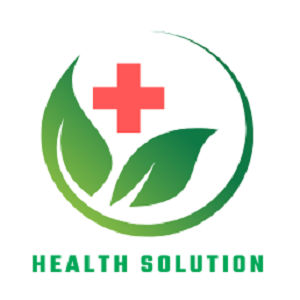To become a women’s health specialist, you should complete a bachelor’s degree in a related field and then pursue a medical degree.

Photo Credit: https://www.freepik.com
Why Women’s Health Matters
Women’s health is of utmost importance for overall well-being. Prioritizing it ensures a myriad of benefits. From maintaining physical fitness to preventing diseases, a focus on women’s health yields positive outcomes. Regular exercise, a balanced diet, and proper medical care play significant roles in attaining good health.
Moreover, women’s health encompasses reproductive health, mental well-being, and hormonal balance. By taking care of these aspects, women can lead a wholesome and fulfilling life. Understanding the importance of women’s health allows individuals to make informed decisions and seek professional help when needed.
By becoming a women’s health specialist, you can contribute to the well-being of women and empower them to take charge of their health. Remember, good health is the foundation for a prosperous and happy life.
Key Considerations For Women’s Health
Women’s health is a significant area of specialization requiring careful consideration. Understanding the biological differences and unique health needs of women is crucial. The impact of hormones on women’s health is profound and should not be overlooked. From puberty to menopause, women go through various stages that come with their own set of challenges.
Common health challenges women face include reproductive health issues, different types of cancers, and autoimmune diseases. Ensuring comprehensive care for women means addressing these specific concerns and tailoring treatment and prevention strategies accordingly. Women’s health specialists play a crucial role in promoting wellness and providing effective healthcare for women, emphasizing the importance of regular check-ups, screenings, and education.
By recognizing and addressing the unique health needs of women, specialists can make a significant impact on the overall well-being of women across all stages of life.
Nourishing Your Body
To become a women’s health specialist, nourishing your body is crucial. Balancing a nutritious diet is key. Hydration plays a vital role in women’s health. Ensuring you have enough water intake is essential. Incorporating vitamins and minerals into your diet is important for optimal health.
Choose foods rich in these nutrients such as fruits, vegetables, and whole grains. A well-balanced diet promotes overall well-being. Remember to include lean proteins and healthy fats as well. It’s essential to take care of your body from the inside out.
Start by making small changes to your eating habits and gradually adopt a healthier lifestyle. By focusing on nourishing your body, you can become a women’s health specialist.
Staying Active And Fit
Regular physical activity is essential for women’s health and overall well-being. It offers numerous benefits for women, including increased energy levels, improved mood, and decreased risk of chronic diseases such as heart disease and osteoporosis. Engaging in different types of exercises can have specific benefits for women’s health.
For example, cardiovascular exercises like running or swimming can improve heart health and increase endurance. Strength training exercises, on the other hand, can help build lean muscle mass and improve bone density, which is particularly important for women as they age.
Creating a sustainable fitness routine is key to staying active and fit in the long term. This involves finding activities that you enjoy and incorporating them into your daily or weekly schedule. By making exercise a regular habit, you can reap the many benefits it has to offer for women’s health.
Managing Stress And Mental Well-Being
Managing stress and maintaining mental well-being is crucial for women’s health. Recognizing and coping with stress is an essential skill for women as they navigate through various life challenges. Engaging in self-care practices, such as exercise, meditation, and journaling, can bolster mental well-being.
It is equally important for women to seek support when facing mental health issues. This can involve reaching out to trusted friends and family members, seeking professional help, or joining support groups. Taking these steps can help women cultivate resilience, manage stress, and foster overall mental well-being.
By prioritizing self-care and seeking support, women can embrace a healthier and more balanced lifestyle.
Understanding Preventive Care
Becoming a women’s health specialist requires a thorough understanding of preventive care. It is crucial to recognize the importance of implementing preventive measures specifically designed for women. Regular screenings play a key role in maintaining women’s health. By undergoing common preventive screenings, such as mammograms and pap smears, potential health issues can be detected at an early stage.
Staying proactive about one’s health is essential, and this can be achieved by scheduling regular check-ups and following recommended preventive guidelines. Taking charge of your well-being is crucial in maintaining optimal health and preventing potential health risks. Remember, prioritizing preventive care is the key to becoming a women’s health specialist.
Women’s Health Screenings
Women’s health specialists play a vital role in promoting and protecting women’s well-being. One crucial aspect of women’s health care is regular screenings. Breast cancer screenings and self-exams are necessary for early detection and treatment. Cervical cancer screenings, along with hpv vaccinations, are essential in preventing this potentially deadly disease.
Additionally, bone density tests are crucial for identifying and preventing osteoporosis, a common issue among women as they age. As a women’s health specialist, it is essential to educate women about the importance of these screenings and encourage them to schedule regular appointments for optimal health and wellness.
By staying proactive and informed about women’s health, we can work towards ensuring a healthier future for all.
Frequently Asked Questions On How To Become A Women’s Health Specialist
What Qualifications Are Needed To Become A Women’s Health Specialist?
To become a women’s health specialist, you typically need a medical degree, followed by residency and fellowship training in obstetrics and gynecology. It’s essential to be board certified in these specialties to ensure you have the necessary skills and knowledge.
Continuing education and staying updated on advancements in the field are also crucial.
What Services Does A Women’s Health Specialist Provide?
A women’s health specialist provides a wide range of services to address the unique health needs of women. This can include routine gynecological exams, contraception counseling, prenatal care, managing menopause symptoms, diagnosing and treating gynecological conditions, performing surgeries, and providing guidance on maintaining overall women’s health.
How Can I Find A Reputable Women’s Health Specialist Near Me?
To find a reputable women’s health specialist near you, start by asking for recommendations from your primary care physician or friends and family. You can also check online directories, review websites, and local hospitals or clinics that specialize in women’s health.
It’s important to research their credentials, experience, patient reviews, and the services they offer.
What Skills And Qualities Are Essential For A Women’s Health Specialist?
Essential skills and qualities for a women’s health specialist include strong communication and interpersonal skills to establish trust and effectively communicate with patients. They should be knowledgeable, compassionate, and able to provide personalized care. Attention to detail, empathy, adaptability, and the ability to work well under pressure are also important qualities in this field.
Can Men Become Women’s Health Specialists?
Yes, men can become women’s health specialists. While it is more common for women to pursue this specialty, men can also excel in the field. The priority is providing high-quality care to women, regardless of the gender of the healthcare provider.
As long as they have the necessary qualifications and skills, men can become respected women’s health specialists.
How Can I Stay Updated On The Latest Developments In Women’s Health?
To stay updated on the latest developments in women’s health, it’s beneficial to join professional organizations and attend conferences, workshops, and webinars related to the field. Subscribing to reputable medical journals and newsletters can also provide valuable insights. Additionally, following renowned women’s health specialists on social media platforms can help stay informed about advancements in research and treatment options.
Conclusion
To sum it up, becoming a women’s health specialist requires dedication, an in-depth understanding of women’s health issues, and a commitment to ongoing education. By following these steps, you can lay the foundation for a successful career in this field.
Start by obtaining a relevant degree or certification, and gain practical experience through internships or volunteer work. Building a strong network of professionals can also help you stay up-to-date with the latest developments in women’s health. Additionally, continuously educate yourself about new research and treatment options by attending conferences or taking specialized courses.
Remember that compassion, empathy, and effective communication skills are just as important as medical knowledge. By integrating these qualities into your practice, you will be well on your way to becoming a women’s health specialist who makes a positive impact on the lives of countless women.

